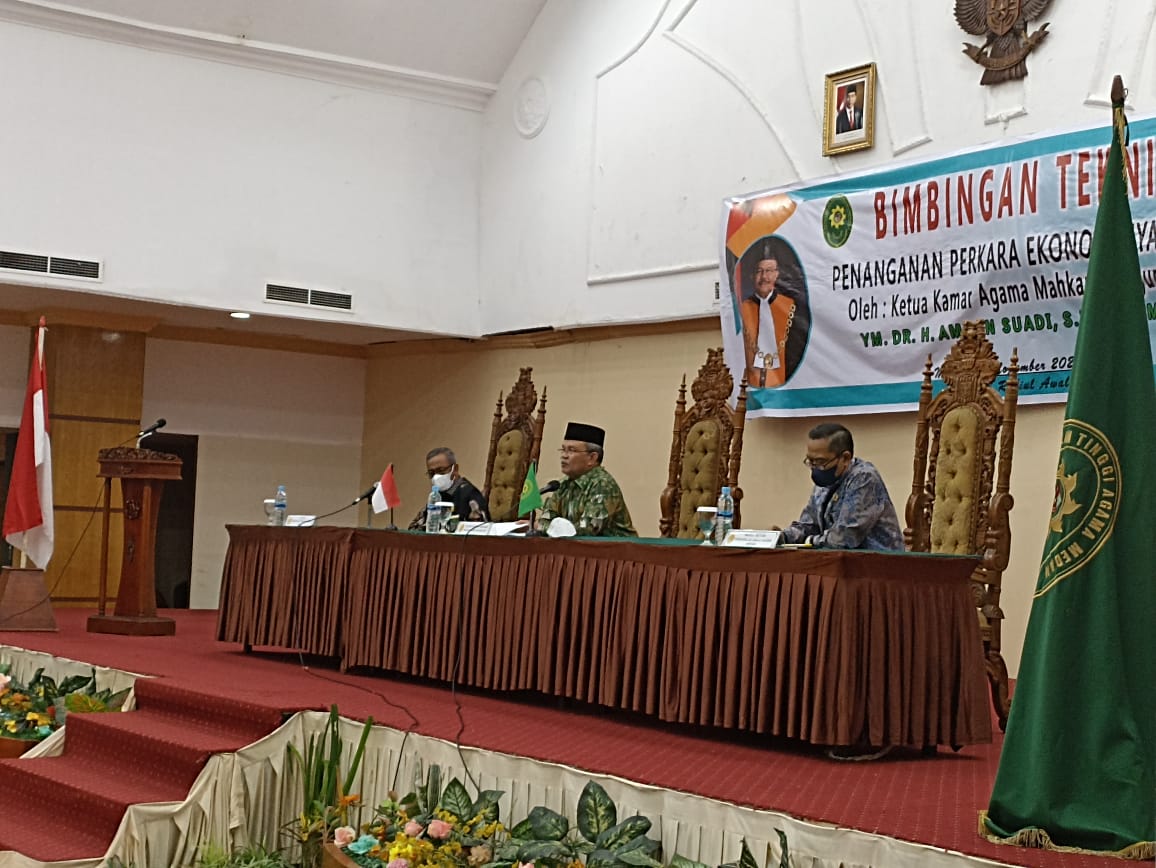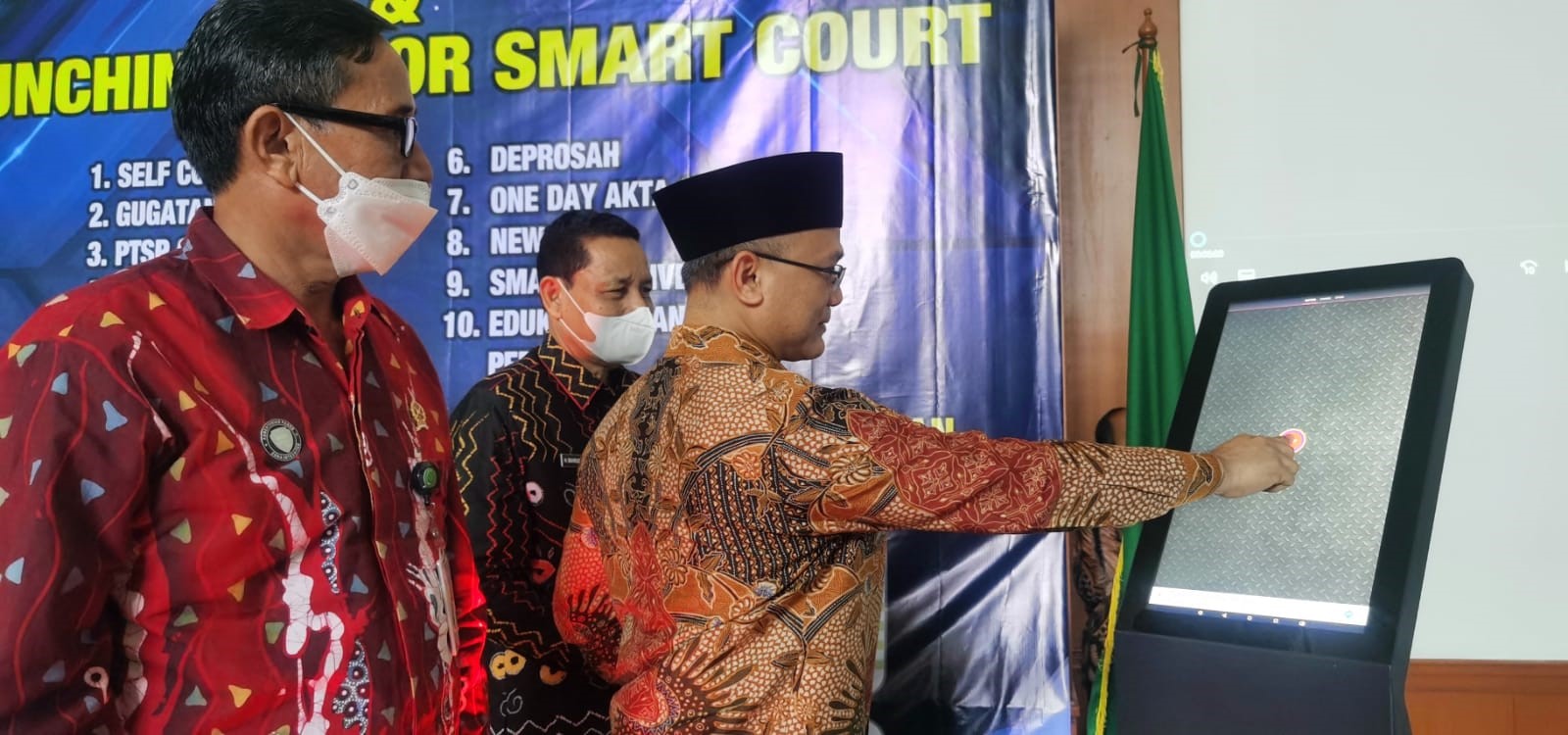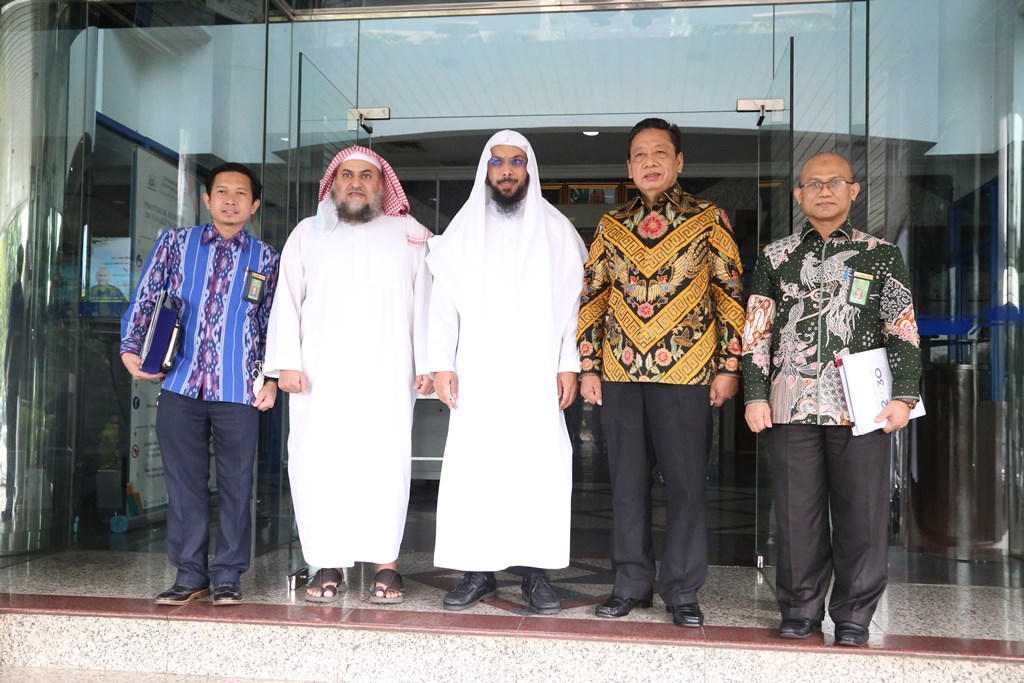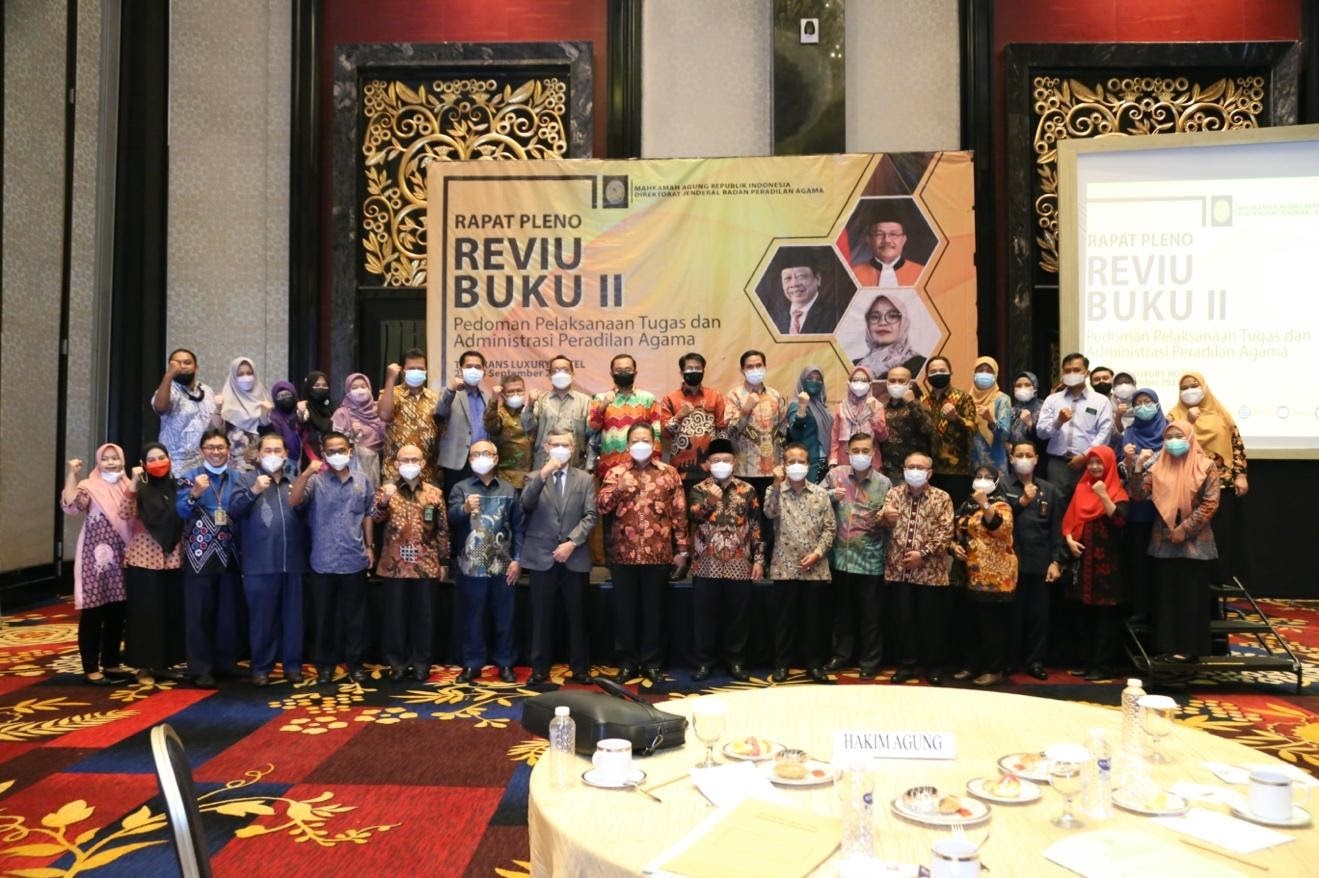Director-General of Badilag Holds a Technical Guidance in North Maluku 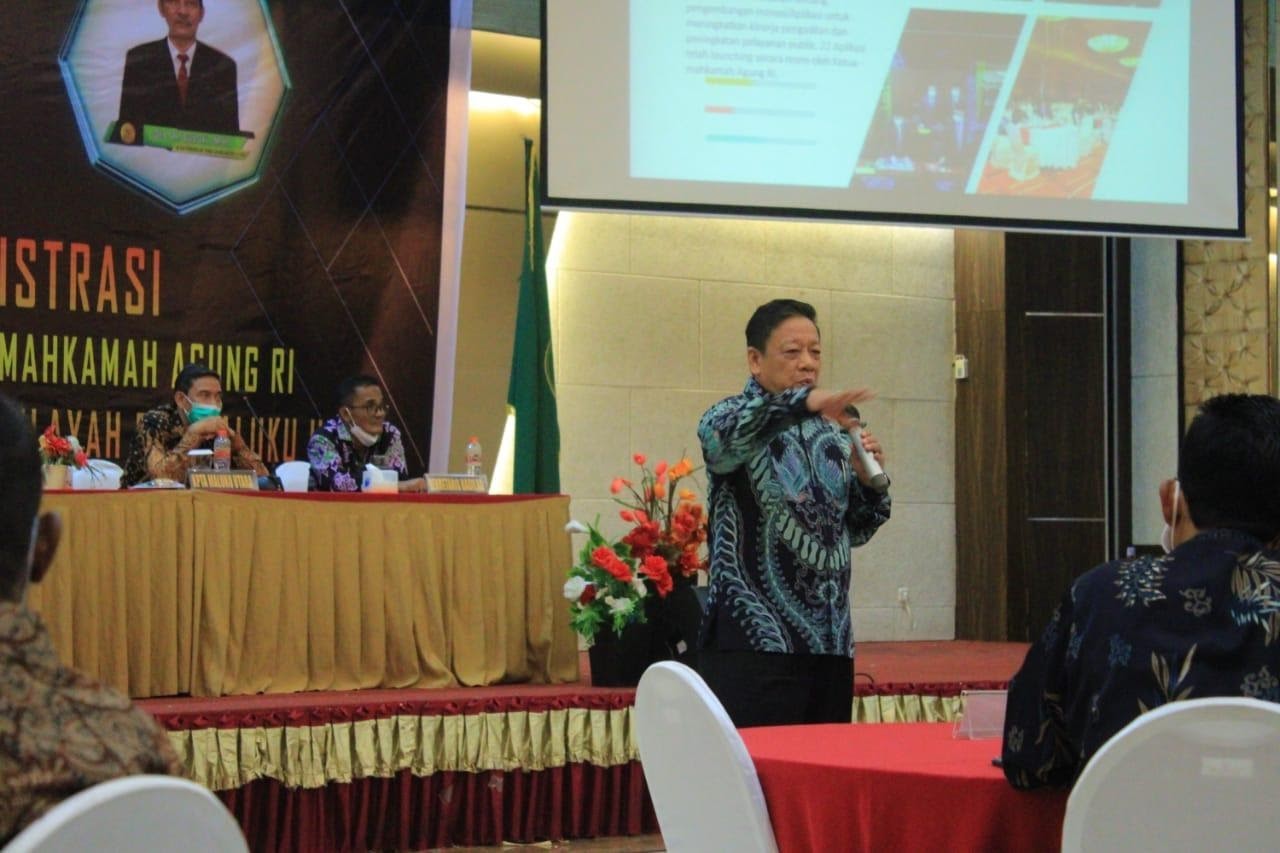
Ternate – Thursday, November 4, 2021, Director-General of the Religious Courts of the Supreme Court of the Republic of Indonesia, Dr. Drs. H. Aco Nur, S.H., M.H. held Technical Administration Development of the North Maluku Religious High Court Territory at Royal's Resto, attended by the High Judges, Judges, Registrars, and Secretary of the Religious Courts throughout North Maluku.
Before delivering his speech, the Director-General expressed his gratitude to all parties who managed to organize this activity so well that the results were very good. Even though this event was only announced about a week ago. "This proves that there is good cooperation, there is a common thought so that the results are very proud," said the Director-General.
On the other hand, the Director-General stated that Badilag is committed to changing the paradigm of organizational performance from a manual system to a digital system. For this reason, since 2019, the Directorate General of Badilag has launched 22 applications in order to improve court performance and improve public services. "All Religious Courts throughout Indonesia are asked to implement Badilag policies in order to improve services to the community".
Previously, the Chief Judge of the North Maluku Religious High Court, Drs. H. Subuki, M.H. In his speech, welcomed the Director-General of Badilag MARI and his entourage at Bumi Moloku Kie Raha and thanked the Director-General and the Echelon II Officials of Badilag for their willingness to provide guidance in North Maluku. "Hopefully this event can be useful to improve the performance and services of religious courts to the community", he hoped
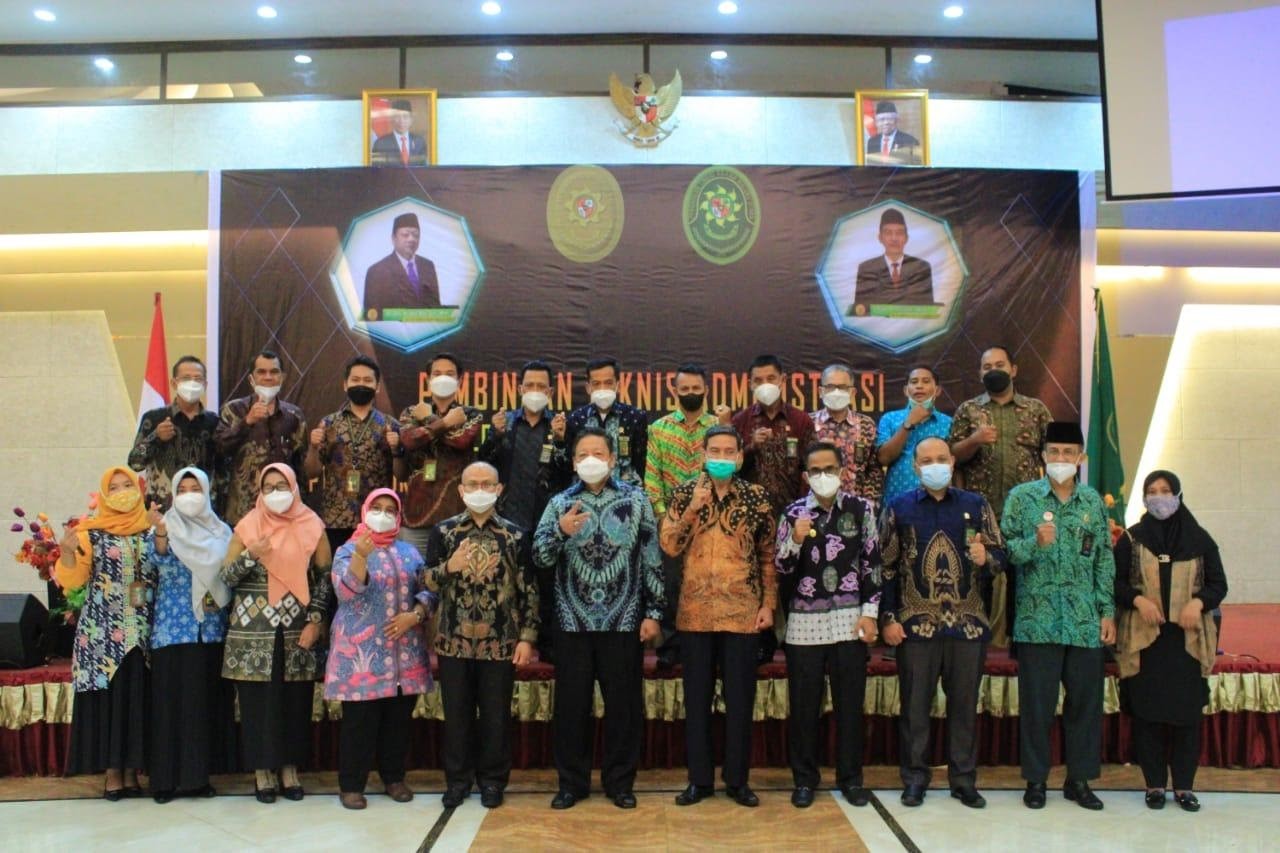
The Director-General along with the Secretary of Badilag, Drs. Arif Hidayat, S.H., M.H., Director of Technical Development for Religious Courts, Dr. Candra Boy Seroza, S.Ag., M.Ag and Director of Religious Court Administration Development, Dr. Dra. Nur Djannah Syaf, S.H., M.H. visited North Maluku from the 4th s.d. November 6, 2021.
The delegation had the opportunity to visit the Ternate Religious Court, the Soasio Religious Court, and the North Maluku Religious High Court in Sofifi. During each visit, the Director General and his entourage always observe and check the existing public facilities, especially regarding their cleanliness and tidiness to provide comfort for the litigants and provide solutions to the obstacles they face.

